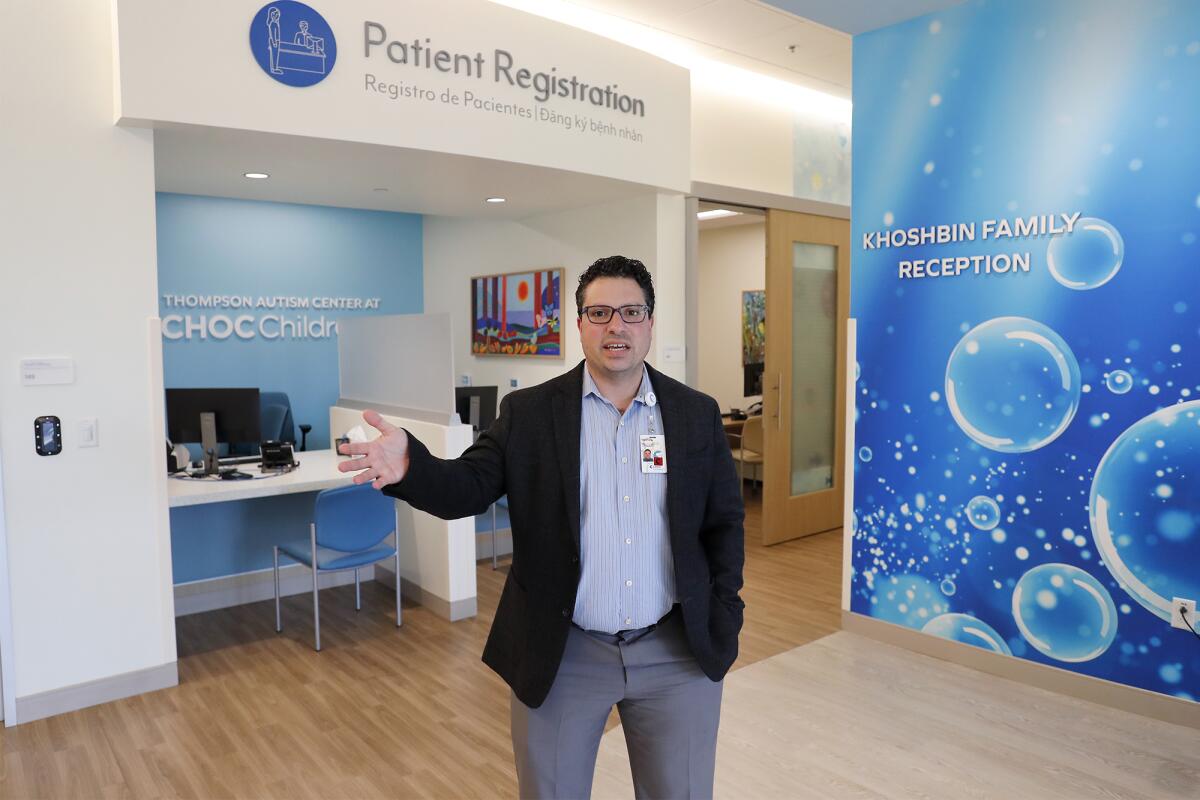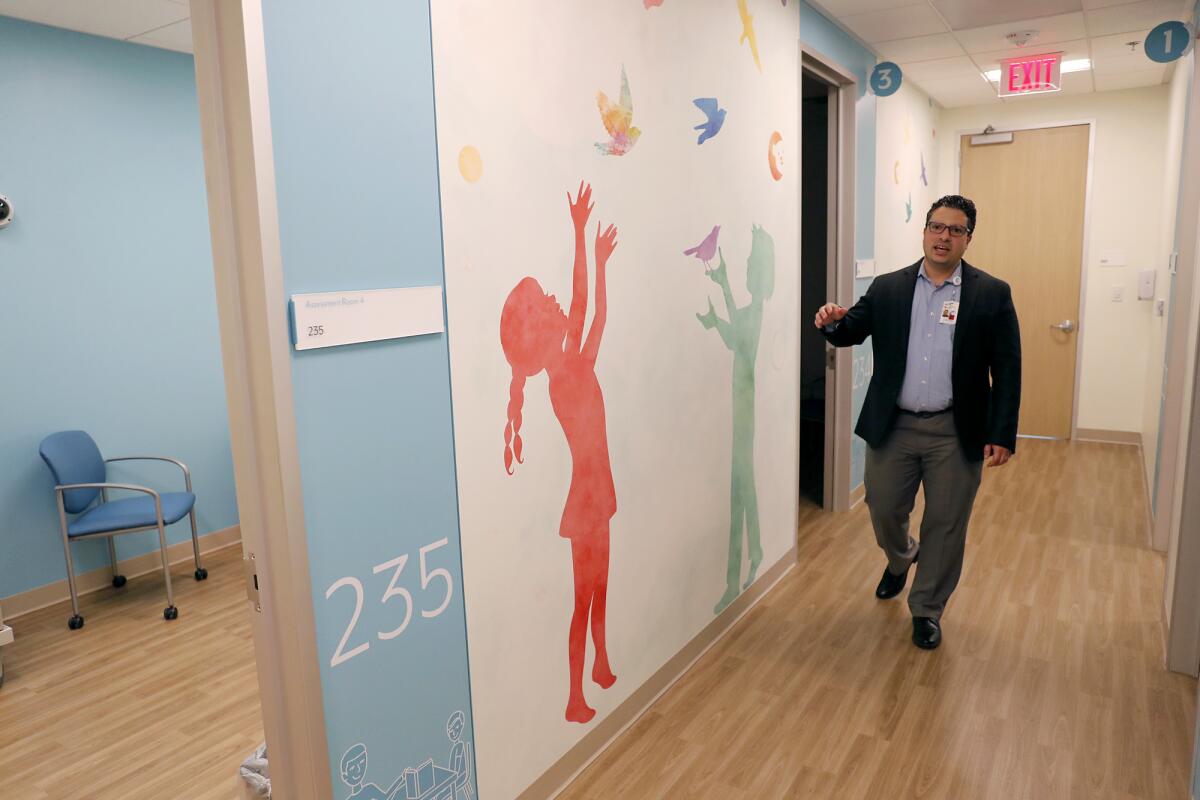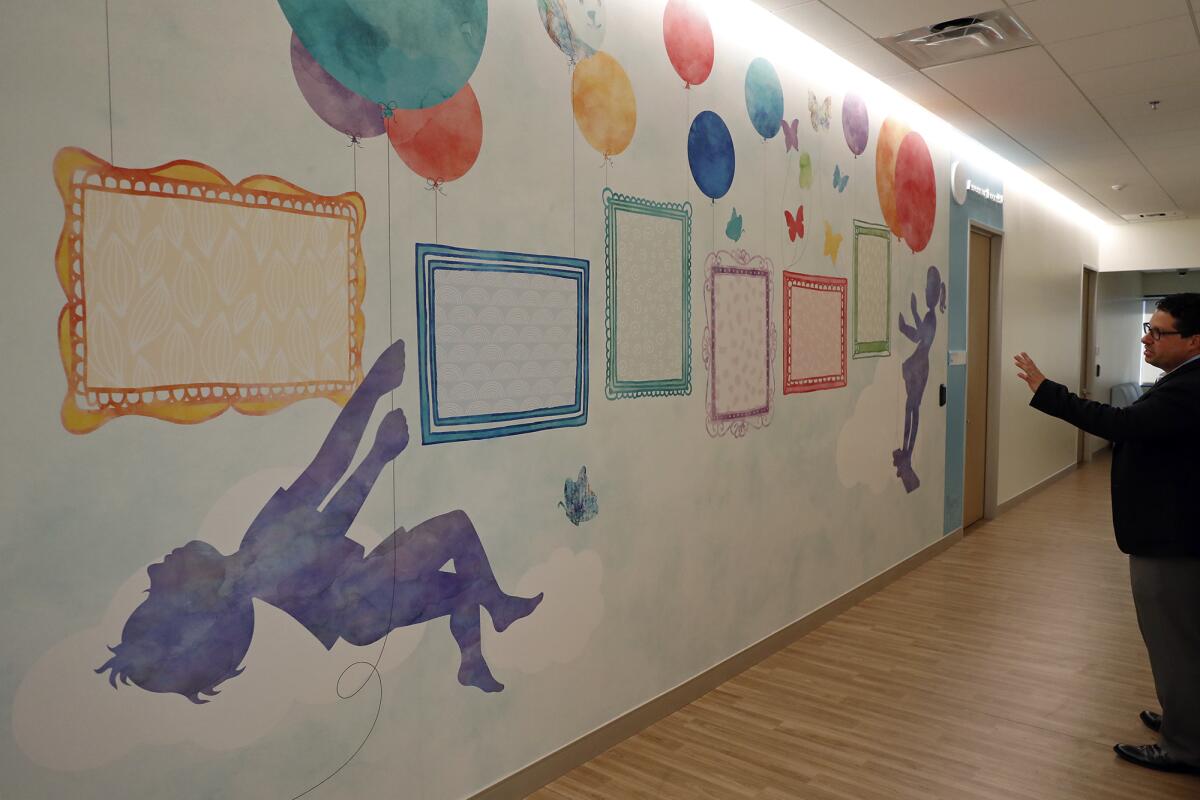Children’s Hospital of Orange County to open new autism center

A new $9.5-million autism center at the Children’s Hospital of Orange County will use a holistic approach to help children and young adults with autism and other developmental disorders when it opens next month.
The Thompson Autism Center, the first of its kind in the county, will provide support for ages 1 to 21, through a team of care specialists, including psychologists, therapists, gastroenterologists, endocrinologists and neurologists, among others.
Tom Megerian, the center’s clinical director, said the facility will provide an answer to families who generally must travel to various locations for their child’s treatment.
“One of the unique aspects is we are providing comprehensive care for kids with autism and their other psychiatric and neuro-psychiatric disorders,” Megerian said. “Often, children don’t just have autism. They have other things like epilepsy, ADHD, anxiety, depression ... Treatment is usually fragmented because families have to go to different specialists.”

The 20,000-square-foot center was largely funded by a $10-million donation from the Newport Beach-based William and Nancy Thompson Family Foundation. The grant will be disseminated over the next few years.
It will have a “co-occurring” clinic where specialists can work to alleviate the myriad of medical, emotional and behavioral issues of each child.
Specialists will be able to meet with one another and coordinate what can be done to address each patient’s needs.
The center will also include a unit to treat children with behavioral issues that can’t be safely addressed in other settings.
“Kids with autism will sometimes engage in self-aggressive and injurious behaviors,” Megerian said. “Sometimes they can be aggressive outwardly too. It’s not malicious, it’s a behavior they have developed. We will provide a place to work to try to get kids to drop those self injurious behaviors or aggression and learn different ways to communicate.”
The behavioral unit will provide consultation services to local providers of Applied Behavior Analysis — intensive behavioral modification techniques and a mainstay for treatment of bad behavior in autistic individuals.
Children will be referred to the Thompson center by the ABA providers if they’ve stalled in their progress. The center will work with families for six to 12 weeks to develop a program that can get the kids back on track.
The behavioral unit will also include a program that teaches kids how to use the bathroom.

A major part of the center is its assessment program, which will focus on diagnosing children as early as possible so critical years of therapy aren’t lost. Megerian said the average age of diagnosis is 4, but autism can be diagnosed at age 2.
The center will also partner with nonprofits, various institutions and government entities to research behavioral and medical treatments for autistic children.
Megerian said they’re hoping to get up to as many as 2,000 patients at the center and it will eventually incorporate more specialists, such as an EMT and ophthalmologist.
“Eventually [we] want to get to the point where we are not limited to autism,” Megerian said. “We will expand over the years into other developmental disabilities. Right now we are focused on autism so we can address that need and start taking care of the backlog of kids that need services.”
All the latest on Orange County from Orange County.
Get our free TimesOC newsletter.
You may occasionally receive promotional content from the Daily Pilot.




